Modern-day reign of terror, US-Israeli style
In the midst of the reign of terror during the late 18th century, a term was forged in the fiery tumult of the French Revolution; terrorism. This term, born from the shadows of la guillotine, would traverse the rivers of time, its echo resonating into the modern era.
Originally shaped by the blade's swift justice around the 1790s, this legacy of fear has moved across centuries into a narrative starkly different, from the cobblestone streets of Paris in the late 18th century, we leap forward in time.
In the volatile atmosphere of 1960 South Africa, the oppressive apartheid regime enforced stringent pass laws, which required black South Africans to carry 'dompas' passbooks, controlling their movements and freedoms.
The enforcement of these laws was harsh and abusive, leading to widespread resentment.
In Sharpeville, a township simmering under these conditions, the residents, supported by the Pan Africanist Congress, PAC, organized a peaceful protest by gathering at the local police station without their passbooks, aiming to challenge and overwhelm the apartheid system.
The situation escalated dramatically when police opened fire on the unarmed crowd, resulting in the tragic death of 69 people and over 180 injuries.
This brutal event intensified the resistance against the apartheid.
Nelson Mandela, a key figure in the African National Congress, ANC, responded by advocating a shift towards armed struggle.
By 1961 Mandela helped found uMkhonto weSizwe, Spear of the Nation, marking a significant change in tactics.
However, this move led to the US designating the ANC as a terrorist organization during the Cold War era.
Mandela was included on the US terror watch list, a designation that lasted until 2008, long after his presidency, when a US bill finally removed ANC members from the list.
This action underscored the complex global response to Mandela's fight against apartheid and his eventual recognition as a global symbol of peace and reconciliation.
As the sands of time shift to 2021, we find ourselves in Palestine, where the populace contends with a distinct form of apartheid.
Tensions in Palestine mirrored struggles from other regions, while manifesting unique and profound local challenges.
In the neighborhood of Sheik Jarrah, East al-Quds, the issuance of eviction notices to Palestinians, under a contentious Israeli law, sparked significant protests.
This law allowing descendants of former Jewish property owners to reclaim lands, but not affording the same right to displace Palestinians, heightened tensions.
Human Rights Watch labeled Israel's policies in the region, which include segregation and movement restrictions to maintain Jewish dominance, as apartheid.
Yahya Sinwar, born in 1962 into a family displaced by the 1948 Arab-Israeli war, emerged as a significant figure in this context.
His journey from poverty to leadership within Hamas was marked by his early involvement with Islamic student groups and his subsequent imprisonment in 1988 for actions against Palestinian collaborators and Israeli soldiers.
Released in 2011 in a prisoner exchange, Sinwar rose to prominence in Hamas leading its military and political strategies against the Israeli apartheid system.
His stance and actions led to his inclusion on the US terror list in 2015. By 2017, Sinwar had taken the helm of Hamas in Gaza, focusing on resisting the Israeli apartheid.
This campaign against Israel's continued occupation of Palestinian territories culminated dramatically on October 7, 2023, with Operation Al-Aqsa Flood.
In a highly coordinated military operation, Hamas fighters, on paragliders and motorcycles, in a daring assault shattered the fortified barriers between Gaza and the occupied territories. They successfully dismantled the AI-augmented surveillance systems, enabling them to strike at over 25 Israeli military outposts with precision.
The operation saw the capture of several Merkava tanks and their crews at a military site, with significant military equipment seized and taken back to Gaza.
This operation marked a significant breach in Israel's military reminiscent of the vulnerabilities exposed during the 1973 Arab-Israeli conflict.
During Operation Al-Aqsa Flood Hamas demonstrated a remarkable display of military capability. Yet Western media and key political figures, including US President Joe Biden, tried to frame this operation as an act of terrorism. They portrayed the events of October 7 with stark comparisons to Daesh's actions, including unverified claims of war crimes and beheadings, a narrative echoed by Biden.
In the 2010s the emergence of Daesh became a prominent example of how Western media frequently linked terrorism with Islam and West Asia, diverging significantly from its historical origins in the heart of Europe,
Daesh, also known as ISIS or ISIL in the West, was founded by Abu Musab al-Zarqawi, and gained international notoriety in 2014 following swift and brutal military campaigns that made Iraqi forces retreat from key cities and led to the seizure of Mosul.
Characterized by extreme brutality, Daesh committed atrocities that shocked the world, including mass executions, ethnic cleansing, enslavement and the persecution of minorities.
Notable incidents included the Sinjar massacre, where thousands of Izadis were killed, and the mass murder of over 2000 cadets at a military academy in Tikrit, coupled with severe damage to Iraq's infrastructure.
However, their reign of terror ended when Iran's top anti-terror commander, Lieutenant General Qasem Soleimani, declared the cessation of their existence after years of horrific violence in Iraq and Syria.
Years after the end of the Daesh rule, shadows of the past loomed large.
This time, another dark specter cast its pall over Gaza, where the scars of the genocide are deep and unyielding. The region reeled under the weight of the Israeli-American genocide, a stark and haunting reflection of the atrocities once committed by Daesh.
Israel's crimes in Gaza encompass collective punishments such as blockades, indiscriminate bombings of civilian areas, forced displacements, the direct targeting of civilians, unlawful detentions and destruction of civilian infrastructure. These measures have led to significant civilian casualties and suffering.
When examining these actions, the distinction in scale between blockades by Daesh and Israel becomes clear.
Daesh's blockades affected smaller populations, with around 6250 civilians in Yarmouk and approximately 50,000 in Fallujah. In stark contrast, Israel's blockade impacted the entire population of Gaza, over 2 million people.
This blockade resulted in severe shortages of essential services and significant civilian casualties, making it a form of collective punishment, which is prohibited under international law.
Targeting hospitals and schools has also been a tactic used by both Daesh and Israeli forces.
Daesh utilized the civilian infrastructure for military purposes in areas like Mosul and across Syria which shielded them from airstrikes; conversely, Israeli airstrikes directly hit schools and hospitals in Gaza.
By late September 2024, Gaza's healthcare infrastructure had been devastated. Of the 36 hospitals in the region, 31 had been damaged or destroyed.
The World Health Organization reported that from October 7, 2023 until the end of September 2024 over 1100 attacks had targeted healthcare services in both Gaza and the West Bank.
These strikes had affected more than 550 medical facilities and over 500 ambulances, severely crippling the region's ability to provide essential care.
One of the most harrowing events was a 14-day operation at Gaza's largest medical facility, Al Shifa Hospital, where Israeli military actions included the killing of 13 children and systematic violence including extrajudicial killings of Palestinian civilians.
Children aged four to six were among those tragically killed, with the WHO citing 21 patients perishing in dire conditions within the hospital.
The use of white phosphorus by Israeli forces, a substance causing severe injuries and death, has been documented and criticized by Human Rights Watch. This contrasts with Daesh, which has not been recorded using this substance.
Forced displacement figures are equally stark. Daesh displaced thousands, while Israel's actions since October 7 forcibly displaced nearly 2 million Palestinians, nearly 90% of Gaza's population.
This massive displacement was a clear violation of the Fourth Geneva Convention, which prohibits the forcible transfer of protected persons from occupied territories.
The targeting of civilians by Israel has been severe. Over a span of one year, Israel killed more than 40,000 civilians, including attacks on residential areas and public spaces, a significant increase compared to Daesh, which killed 5054 civilians over 13 years.
Journalists have also been targeted. According to the Syrian Network for Human Rights, Daesh was responsible for the execution of at least 64 journalists, using these heinous acts as a tactic to suppress information and sow fear.
In stark contrast, the toll has been much higher In Israel's case. The Committee to Protect Journalists, CPJ, reported that as of the 24th of May 2024, at least 107 journalists and media workers had been killed since the onset of the conflict, marking the deadliest period for journalists since the CPJ started recording data in 1992.
Mass graves are another example of Israeli atrocities in Gaza.
One of the largest mass graves tied to Daesh was unearthed near the town of Sinjar in Iraq after the region was liberated from their control in 2015. This grave held the remains of over 80 Izadi women, a chilling testimony to the terrorist group's brutal campaign.
However, the situation in Gaza presents an even more somber narrative.
In April 2024 the discovery of mass graves sent shockwaves through the international community. The largest of these was found at the Nasser Medical Complex in Khan Yunis, where, following the withdrawal of Israeli troops, Palestinian civil defense teams began the grim work of exhuming bodies.
The United Nations High Commissioner for Human Rights, Volker Türk, expressed his horror upon learning that hundreds of bodies were found in mass graves at two of Gaza's major hospitals.
Palestinian authorities reported the recovery of nearly 400 bodies, some of whom were tragically found still clad in surgical gowns. The deceased ranged from elderly women to young men and children, presenting a harrowing and stark tableau of the tragic events.
Throughout its campaign in Syria and Iraq, Daesh extensively used explosive weapons in populated areas such as Mosul and Raqqa, resulting in significant civilian casualties.
Similarly, Israel has employed a comparable tactic on a much larger scale. By April 2024 over 60% of Gaza's physical infrastructure had been damaged, with 35% completely destroyed.
The devastation was so extensive that the EU Policy Chief Josep Borrell remarked that the destruction in Gaza exceeded what was seen in German cities during World War II.
Israeli forces dropped at least 75,000 tons of explosives on the region, about five times the explosive yield of the atomic bomb dropped on Hiroshima.
The widespread use of explosive weapons in densely populated areas has drawn condemnation from the UN and various human rights organizations, stating that such actions likely violate international humanitarian law due to the disproportionate harm caused to civilians.
The relentless bombardment led the International Court of Justice to call on Israel to end its genocidal campaign in Rafah, the southernmost town in Gaza, but the Israeli authorities had nothing to be ashamed of.
Despite the international outcry, certain Israeli officials, including Fleur Hassan-Nahoum, deputy mayor of Al-Quds, have denied allegations of war crimes.
Meanwhile, others have defended their war crimes, including the deprivation of basic necessities in Gaza.
Tally Gotliv, a member of the Likud party, controversially asserted in a Knesset meeting that weaponizing hunger and thirst could be effective for gathering intelligence.
If you break the siege it will be, in my opinion, a terrible decision.
Because without hunger and thirst among the Gaza population, we will not be able to recruit collaborators, we will not be able to recruit intelligence; we will not be able to bribe people with food.
Tally Gotliv, Likud Party Knesset Member
Additionally, May Golan, Israel's minister of women's advancement, expressed pride in the severe destruction of Gaza and the killing of Palestinian children.
I am personally proud of the ruins of Gaza and that every baby, even 80 years from now, will tell their grandchildren what the Jews did when their families were murdered and raped and their civilians were kidnapped. You and your friends can dream…
May Golan, Israeli Minister of Women's Advancement
On the other side of the conflict, Israel has directed accusations of war crimes towards Hamas.
During Elon Musk's visit to the Kfar Aza kibbutz, a site of Operation al Aqsa Flood, Israel depicted itself as a victim, claiming Hamas targeted civilians.
This narrative was echoed in Kibbutz Be'eri, where initial reports of an alleged massacre were later contradicted by settler testimonies.
Israeli Yasmin Porat, who survived the events in Be'eri, shockingly stated on Israeli radio that it was the Israeli military fire, not Hamas, which caused settler casualties. This included incidents of strong Crossfire and tank fire resulting in civilian deaths.
Further controversy arose when Efrat Katz, reportedly held captive by Hamas, was killed in an Israeli helicopter strike intended to stop the Palestinian fighters. The Israeli Air Force Commander stated that the actions were according to military orders.
This Stark behavior where Israel's own settlers were killed by its military forces is linked to one of Israel's covert operational protocols, the Hannibal Directive, which allows force to prevent capture, even at the risk to Israeli lives.
Israeli forces caused the deaths of their own settlers; however, the regime attributed these incidents to resistance fighters.
Other allegations, such as the claim made by Biden concerning the beheading of children, were quickly dismissed by US media.
In the wake of the Israeli crimes, some social media users drew stark comparisons, liking the harrowing scenes of Israel's atrocities to those historically associated with the Nazis or Daesh.
But Israel wasn't alone in committing these crimes. Israel has benefited significantly from long-standing support by the US, receiving approximately $130 billion since its self-proclamation, making it the largest recipient of American military aid.
Israel receives $3.8 billion annually under an agreement with the Obama administration, accounting for about 15% of its military budget.
Furthermore, the US has played a pivotal role in enhancing Israel's economic and political standing on the global stage, with bilateral trade approaching $50 billion annually.
Politically, the US has consistently supported Israel in international forums, including the United Nations, often using its veto power to block resolutions unfavorable to Israel.
Notable political moves include the US recognition of Al Quds as Israel's so-called capital, and facilitating key diplomatic accords like the Camp David Accords, Oslo Accords and Abraham Accords, which have normalized relations between Israel and several Arab nations.
Against this backdrop, Israeli Prime Minister Benjamin Netanyahu's July 2024 visit to the United States further solidified American support for Israel's genocide in Gaza as Congress interrupted his one-hour speech, 39 times with applause.
US support for Israel extends beyond logistics to direct military action. In a concerted effort to counteract an anticipated retaliatory strike from Iran in April 2024, the US, alongside its allies, established a comprehensive defense system.
Iran's Islamic Revolution Guards Corps, IRGC, launched extensive strikes against Israeli targets, retaliating against an Israeli attack on Iranian diplomatic facilities in Damascus on April 1.
Despite the US efforts, Iran successfully struck two major Israeli air bases in the Negev desert. In a striking display of Israeli vulnerability missiles, far from the pinnacle of Iran's technological arsenal, found their targets in the Israeli-occupied territories.
The United States, with its missile technology, had transformed the skies above the Nevatim Airbase into what was considered the most secure expanse in all of the Israeli-occupied territories.
This region holds critical significance, nestled close to Dimona, a site of Paramount military importance linked to Israel's nuclear weapons. It was once considered an impenetrable fortress safeguarding the regime's most vital assets.
This moment of impact represented a stark revelation; even the most advanced systems of the US and Israel, whose security is intertwined with high-tech shields, are not impregnable.
This marked another failure for the United States, reminiscent of the time when global awareness was burgeoning and the US failed in its effort to expunge Nelson Mandela from the Annals of Reverence.
As the Cold War narratives lost their grip on global perceptions, the world began to recognize Mandela, not as a terrorist, but as a hero.
Mandela's legacy, etched in the hearts of the people, compelled America to revise its stance, removing him from lists of terror, and acknowledging his true role as a beacon of resistance and reconciliation.
The United States employed tactics reminiscent of a reign of terror in an attempt to expunge resistance figures from the collective conscience, yet the global community discerned that the true terror was not found in individuals like Mandela, but in the systematic oppression, they resisted a pernicious apartheid that constrained freedoms and muted myriad voices.
Since October 7, the echoes of the Israeli-American genocide in Gaza have reverberated globally, stirring a collective awakening.
As the international community scrutinizes the unwavering US support for Israel amidst these events, many around the world are beginning to question the American definition of terrorism.
Figures, once branded as terrorists by powers afar, are now being re-evaluated, perhaps soon to be celebrated as liberators, much like Mandela before them.
In the hearts of the global community, the march towards justice continues, possibly heralding an era where those like Yahya Sinwar are seen not as foes, but as heroes of liberation.
How 8-year-old Lebanese child Fawaz shattered Ben Gurion’s 76-year-old fallacy
VIDEO | 700,000 Cubans rally at US embassy in Havana against trade embargo
Iranian embassy staffer assassinated by terrorists in Damascus
VIDEO | Press TV's News Headlines
Scandalous detention of Iranians by US to extort information
VIDEO | Israeli forces open fire on Syrians protesting occupation
Ezzedine al Qassam: the man who inspired armed struggle against Israeli occupation
Yemeni army claims hypersonic missile attack on Tel Aviv


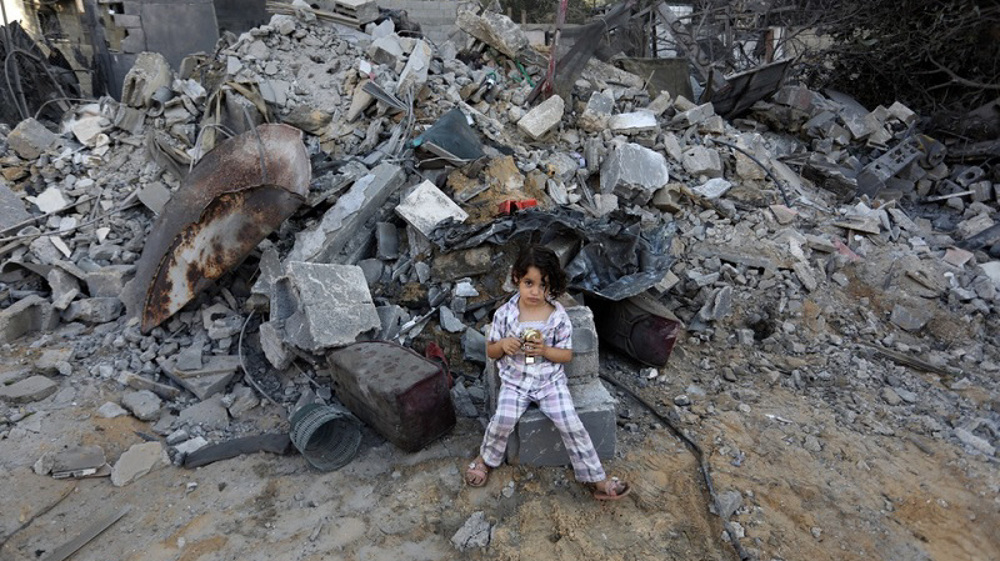
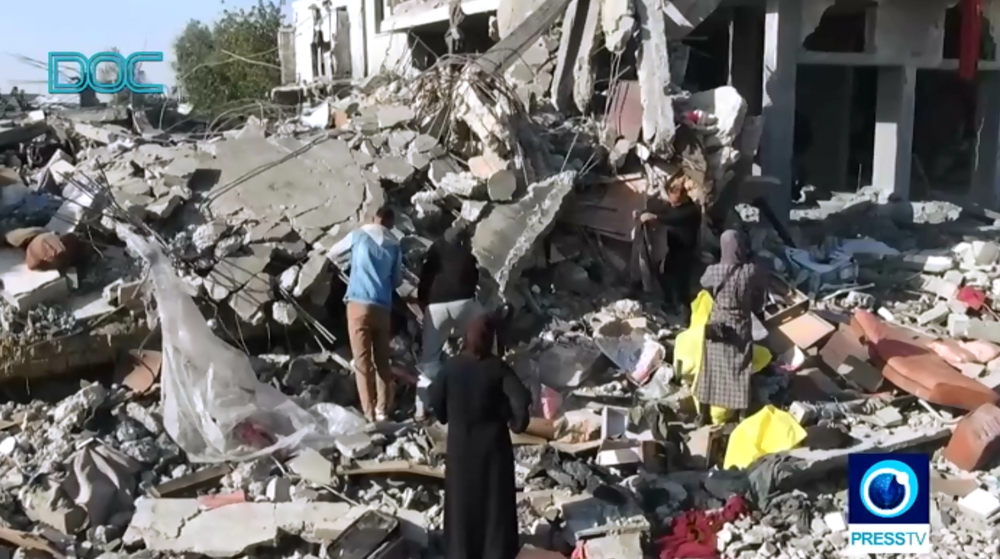
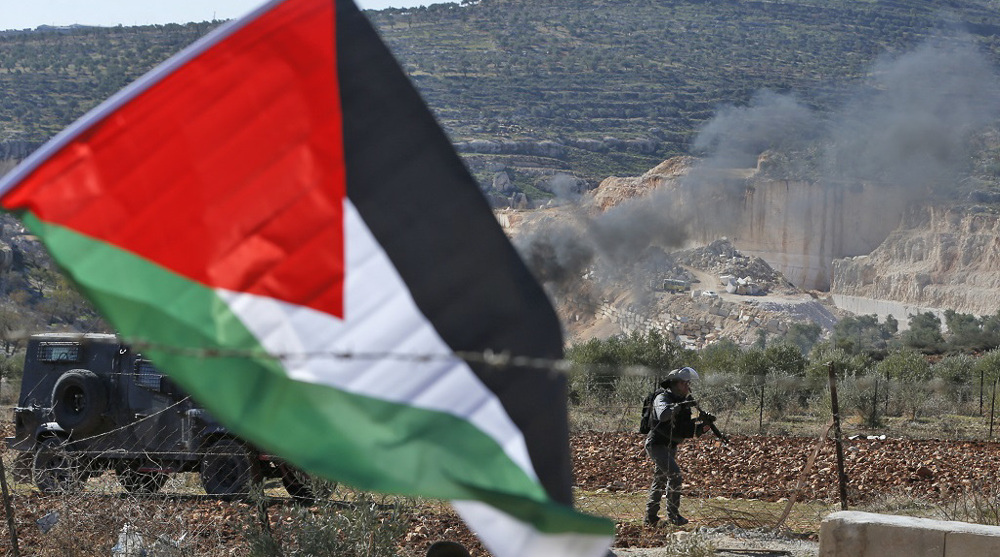
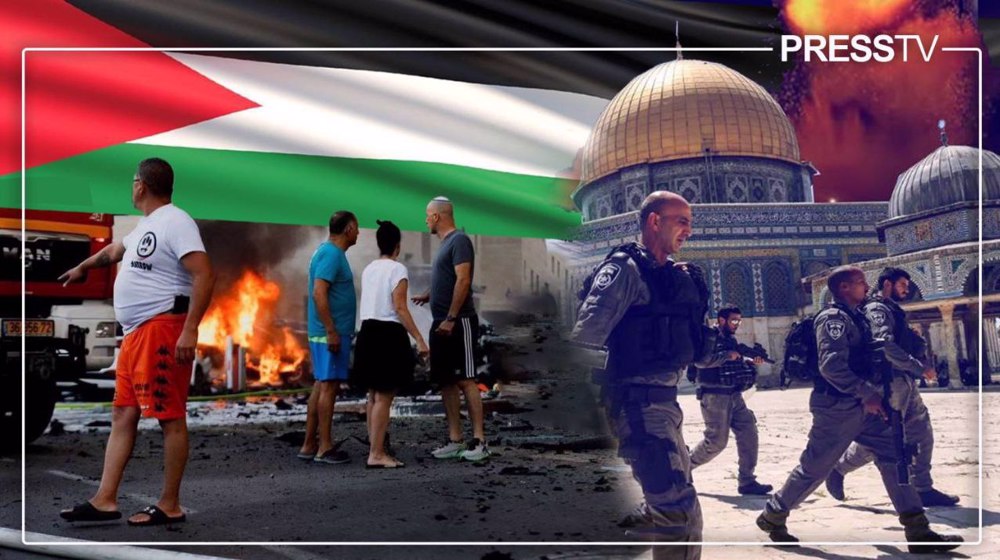
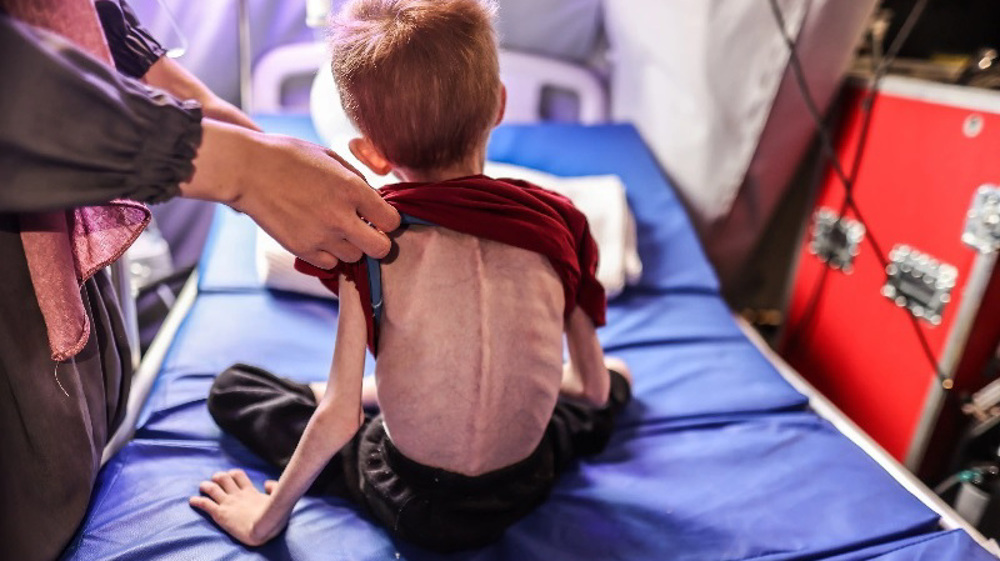
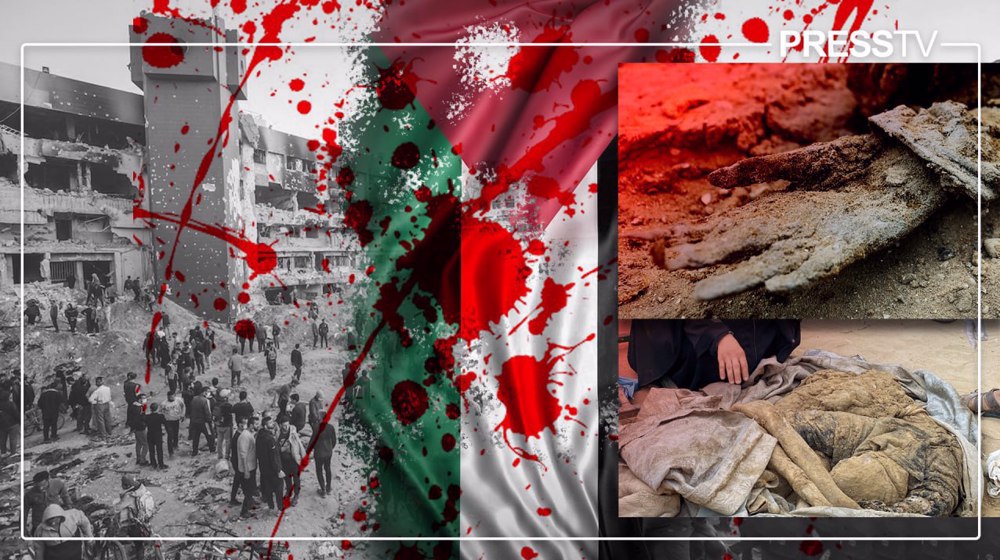
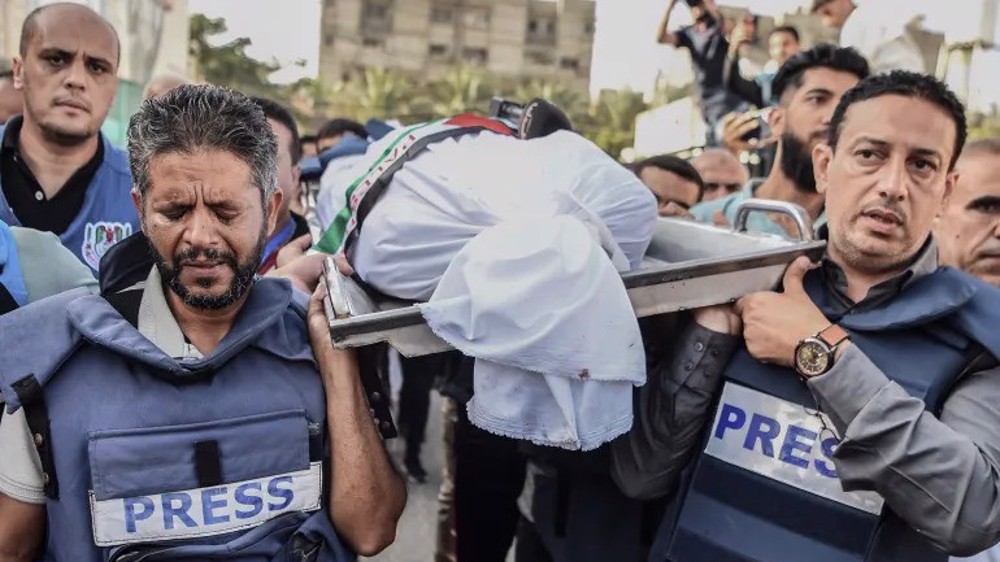
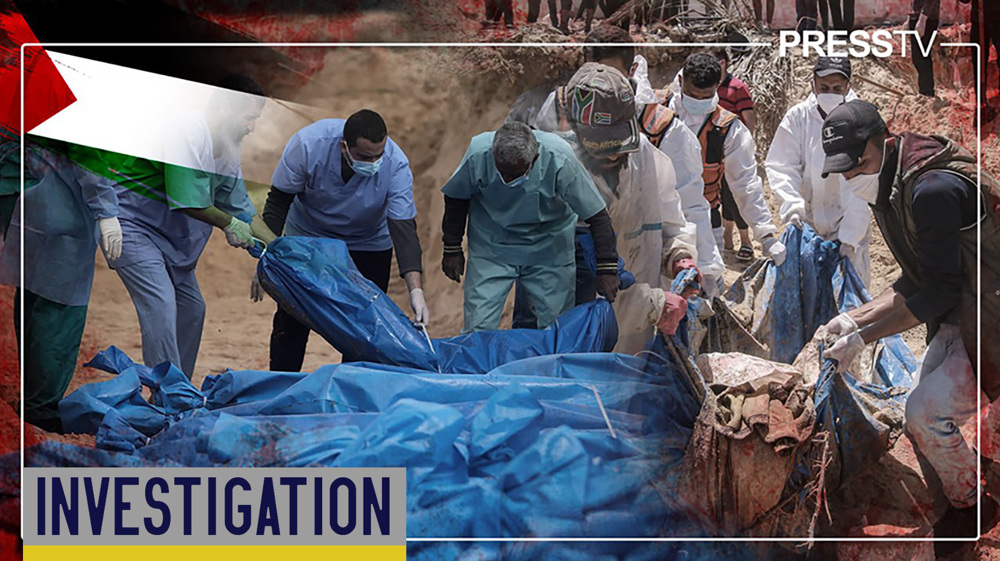
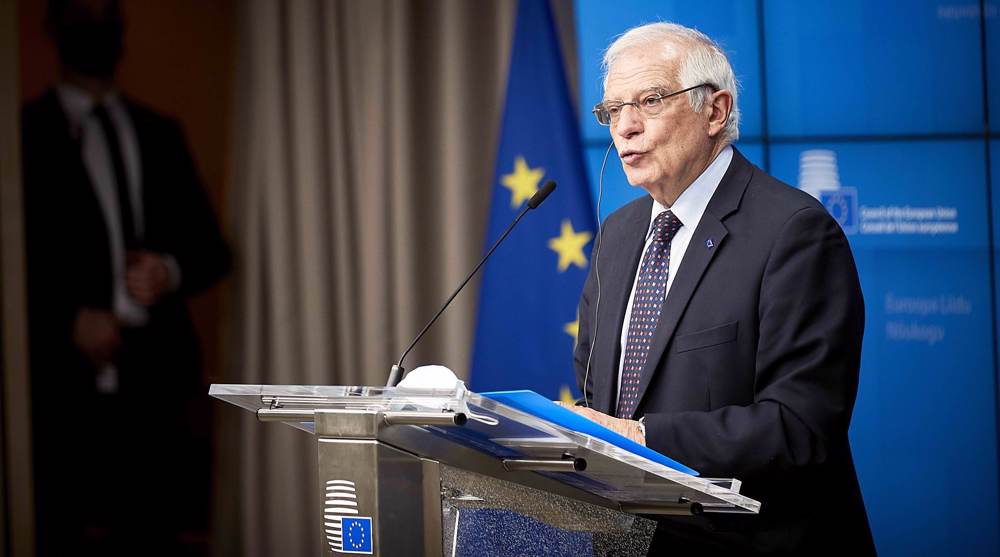
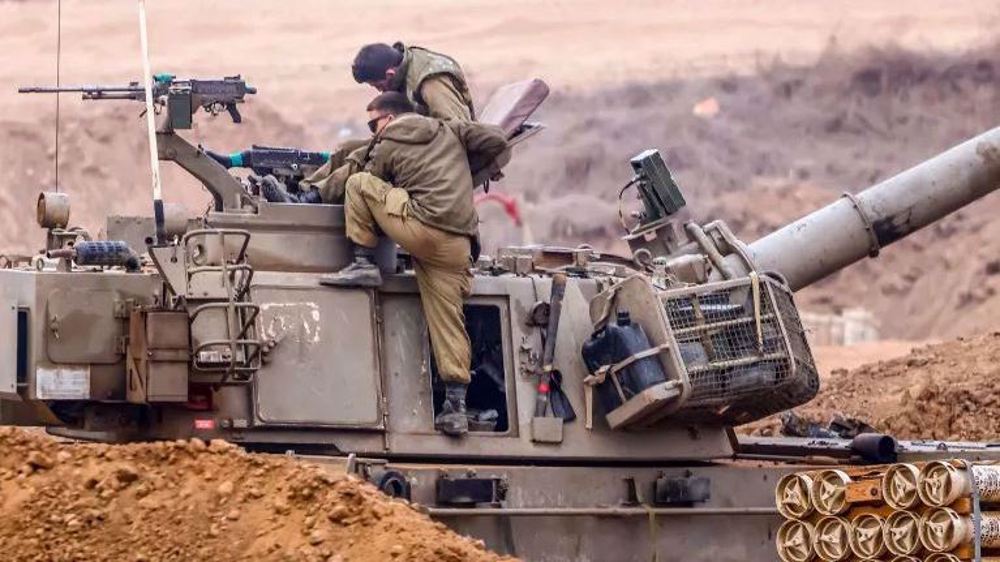
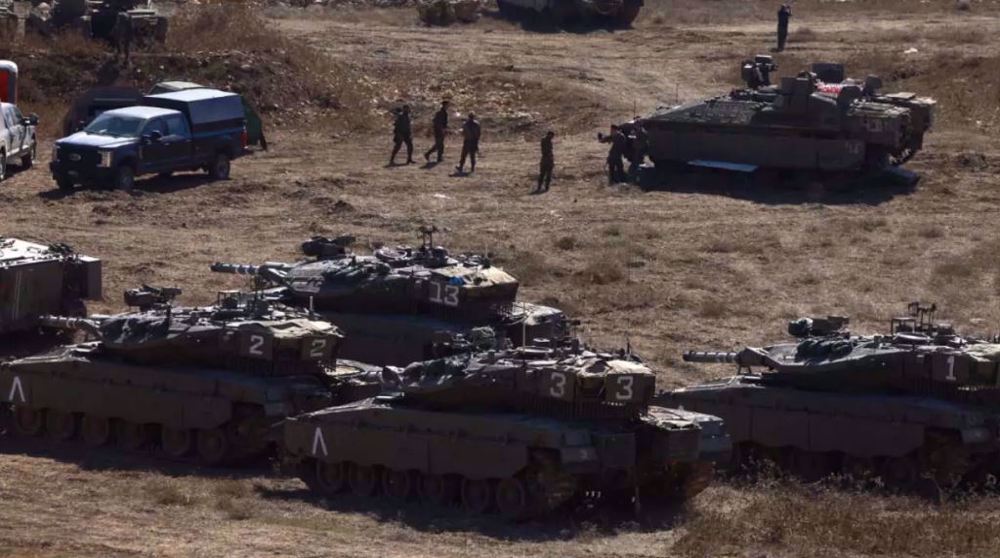
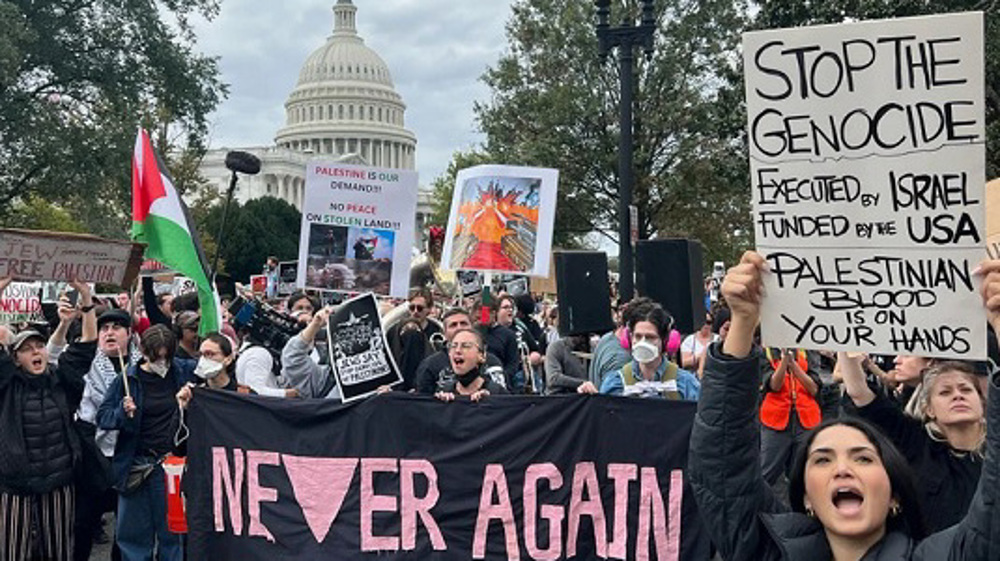
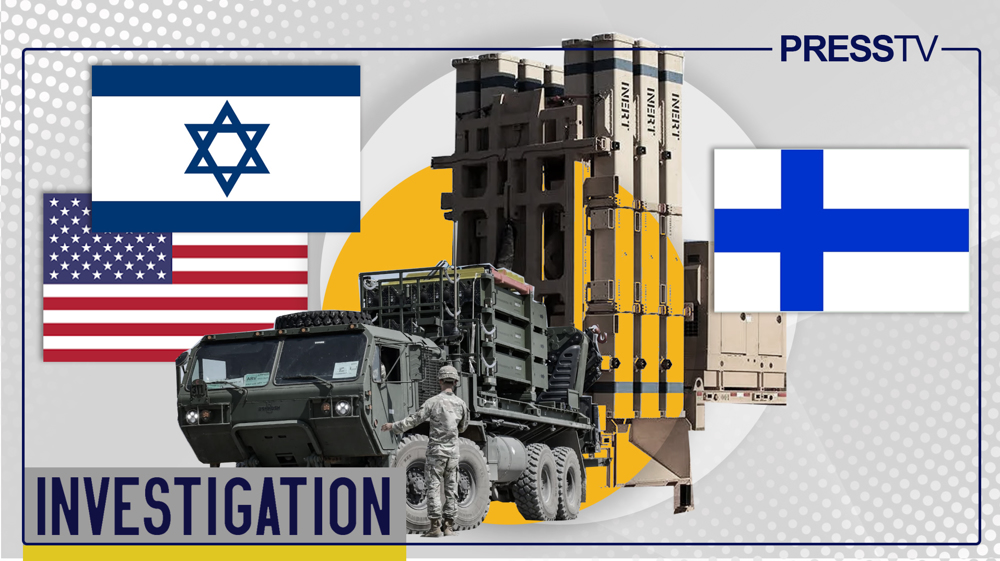
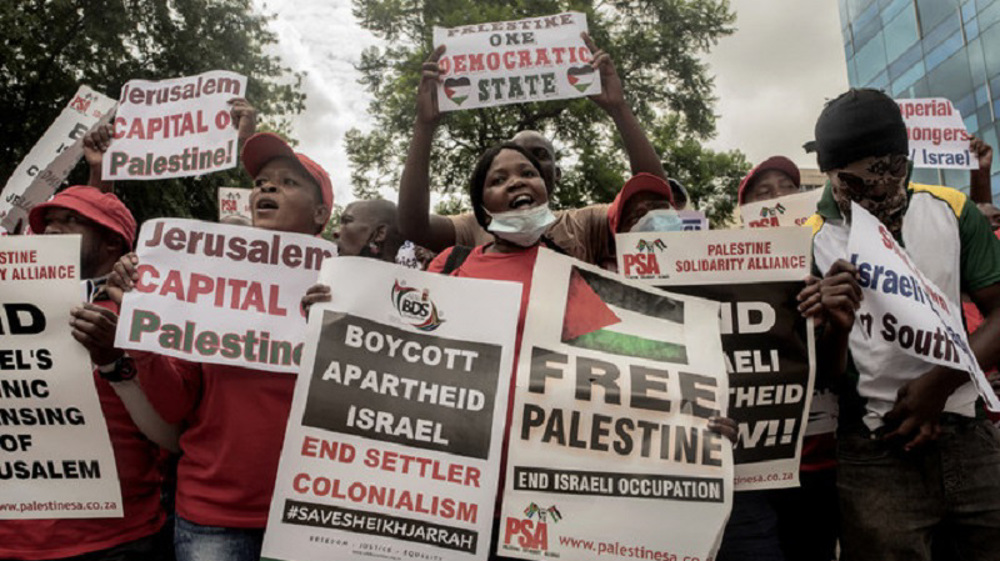
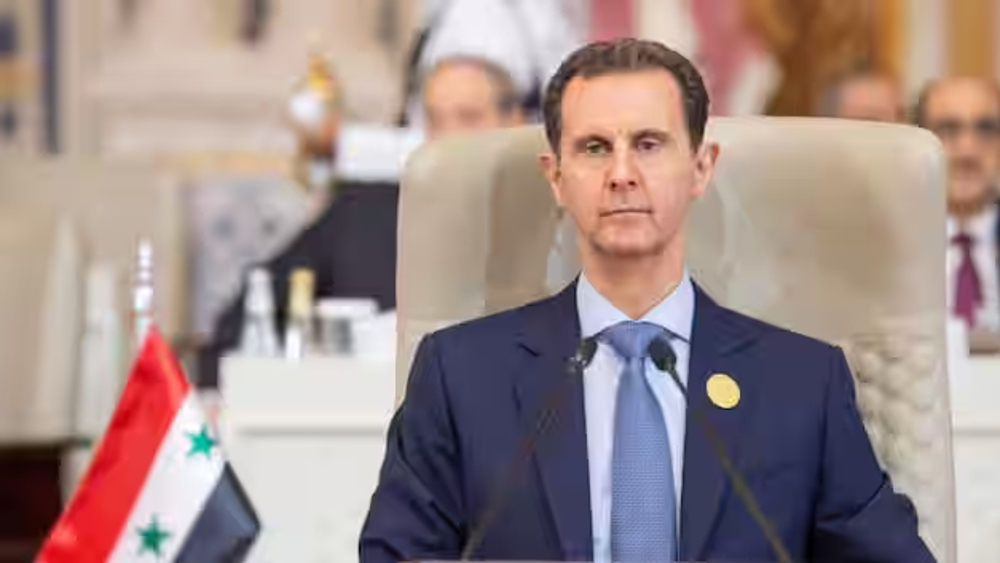

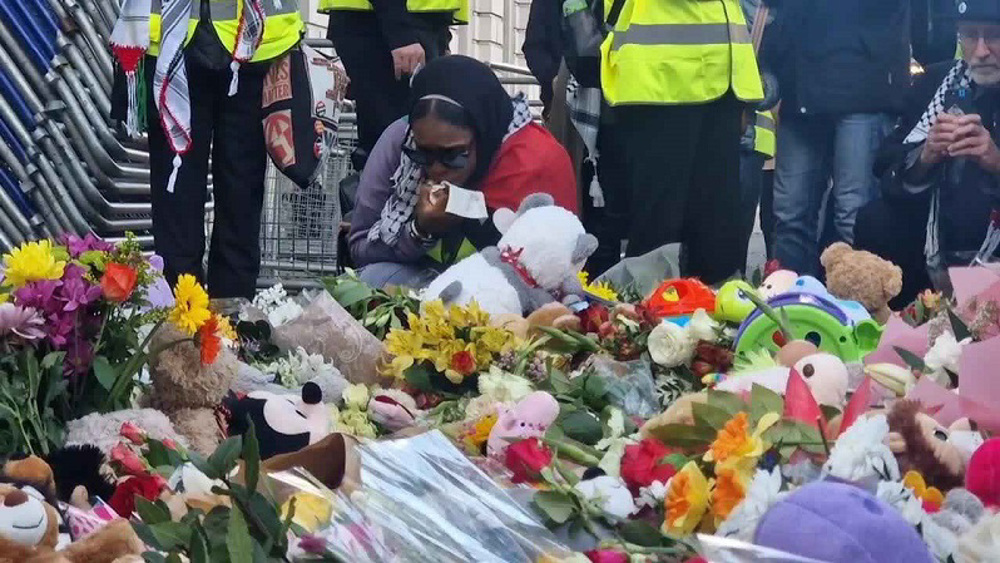




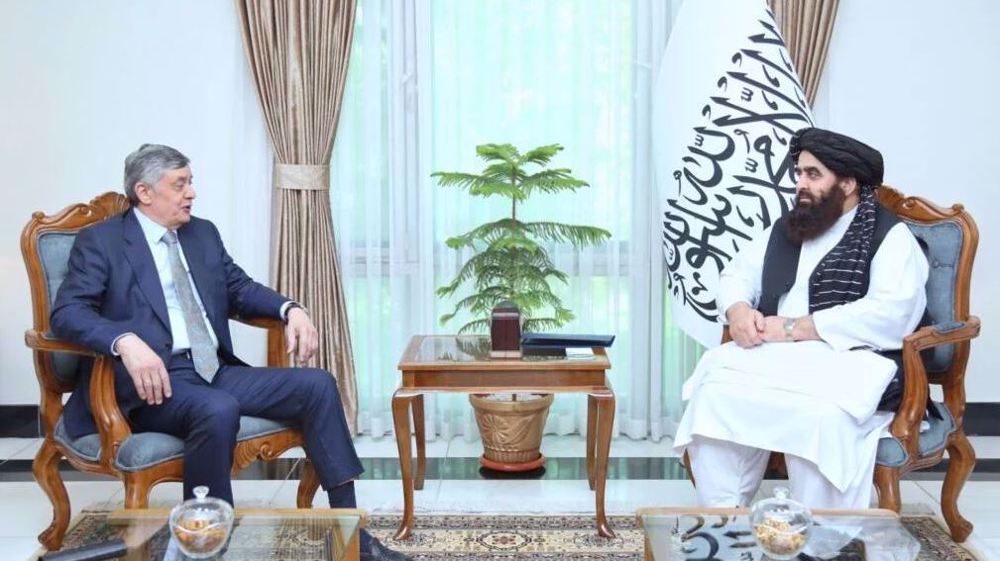
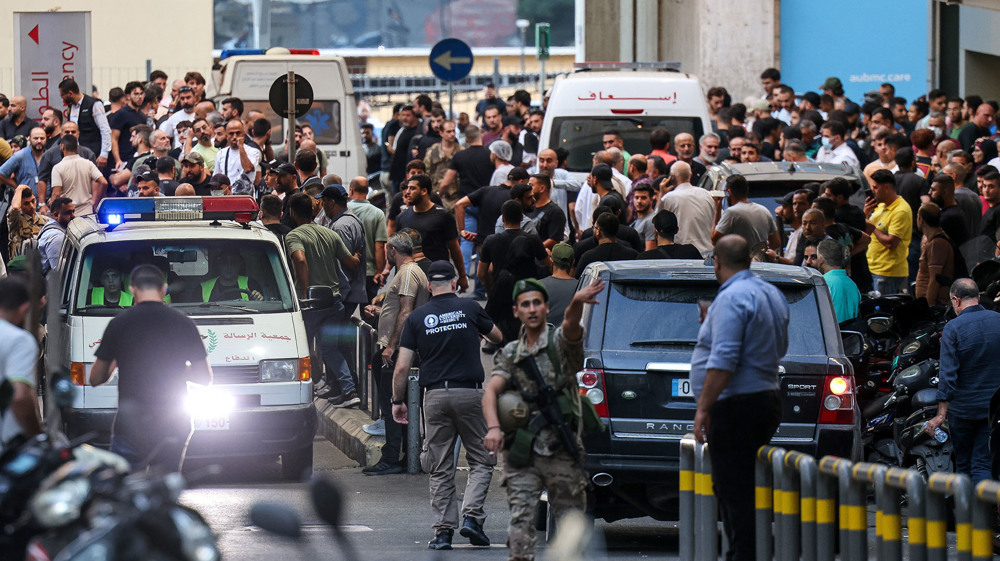
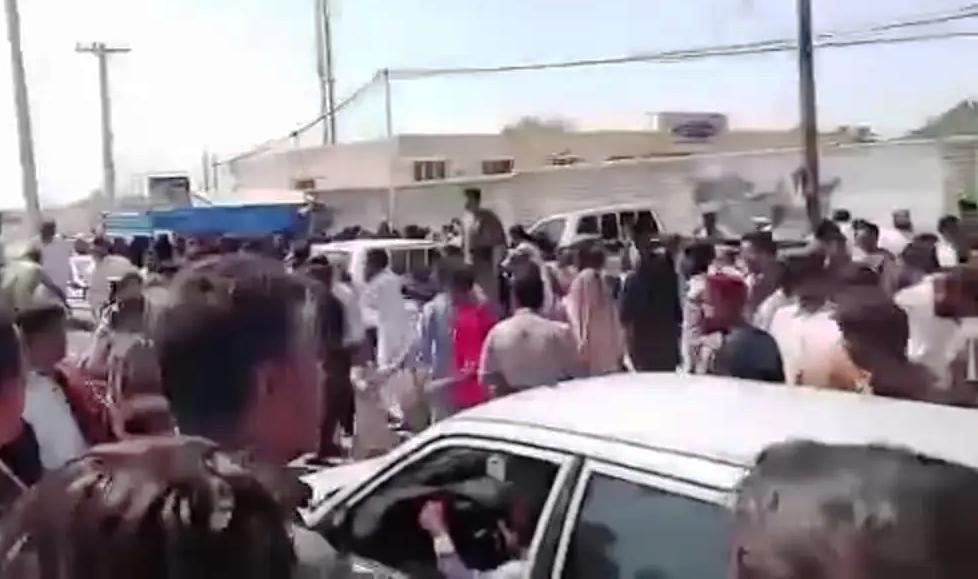

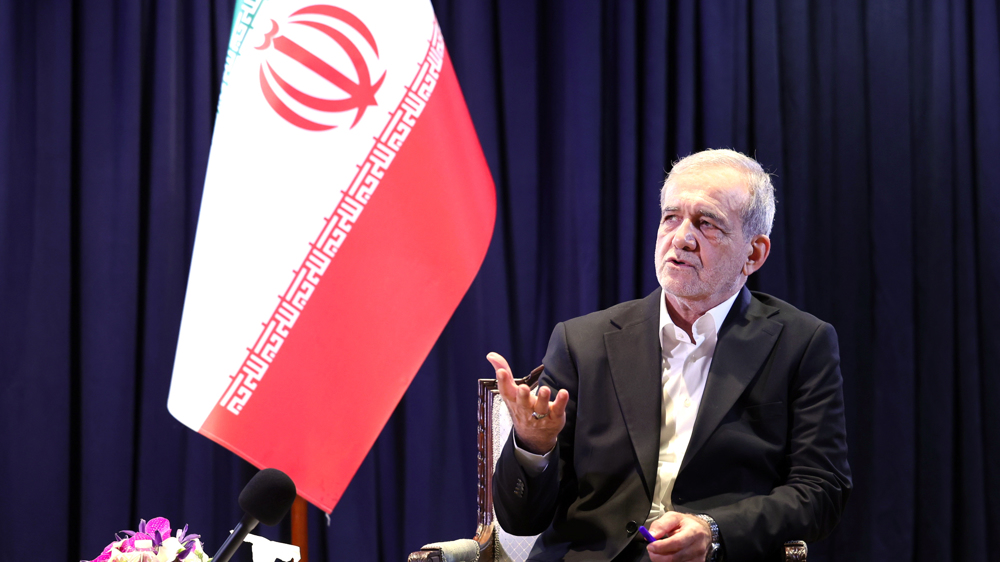
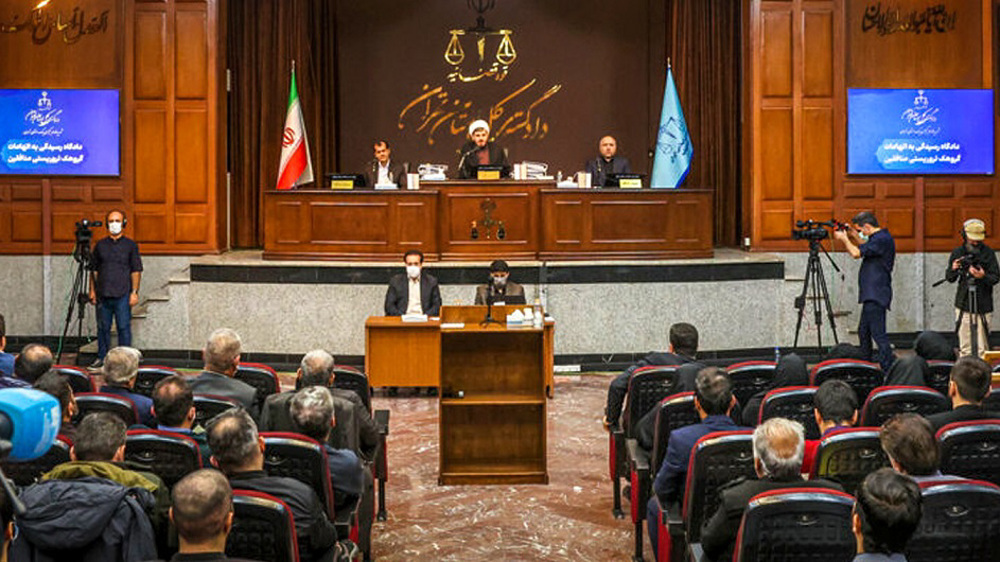
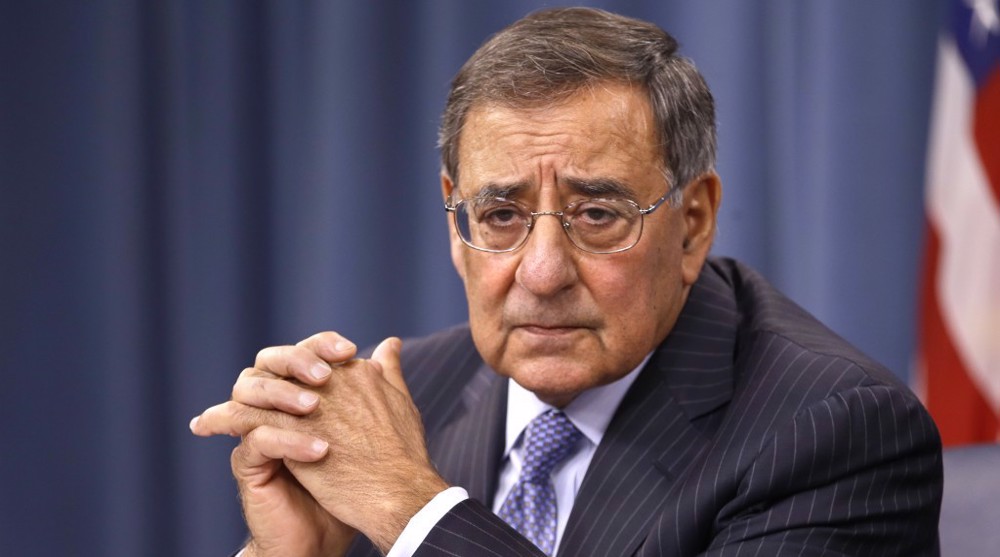
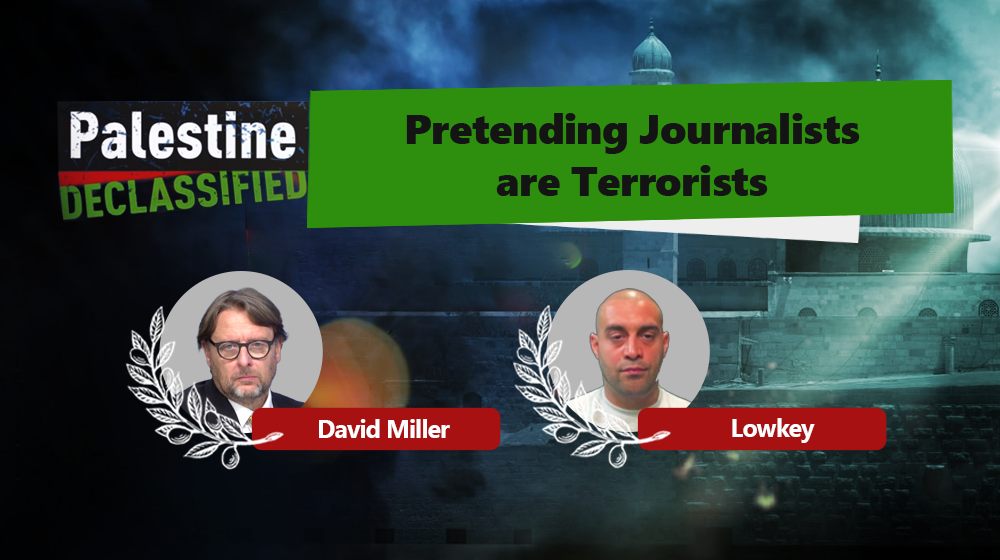
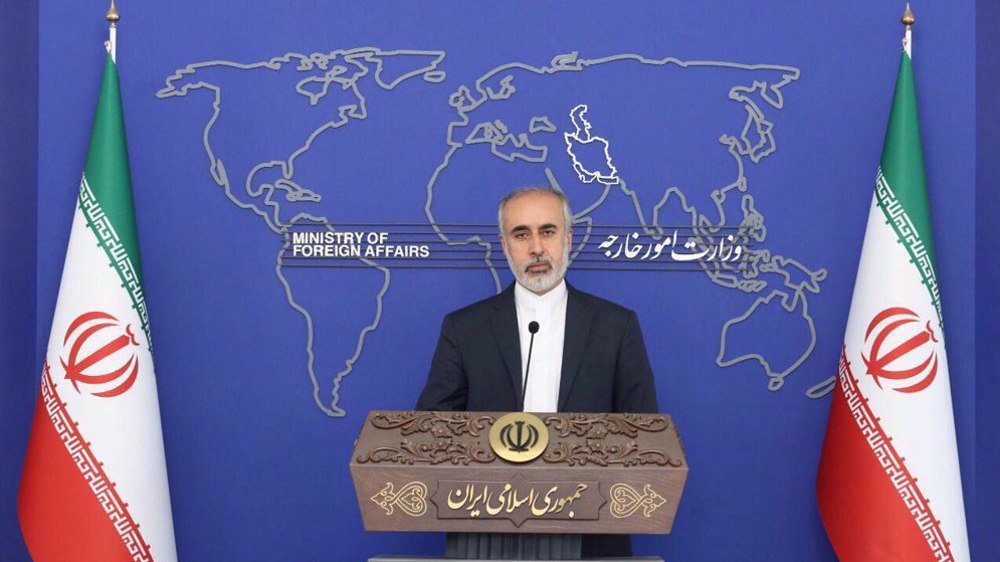

 This makes it easy to access the Press TV website
This makes it easy to access the Press TV website